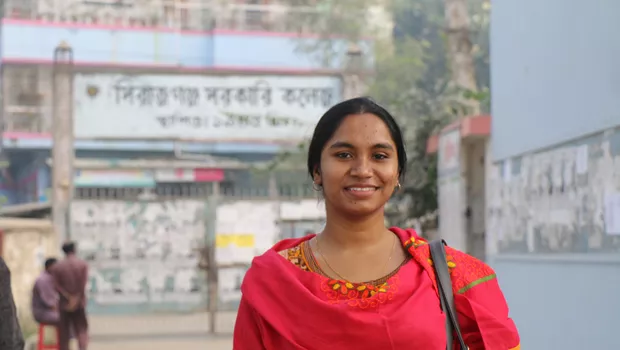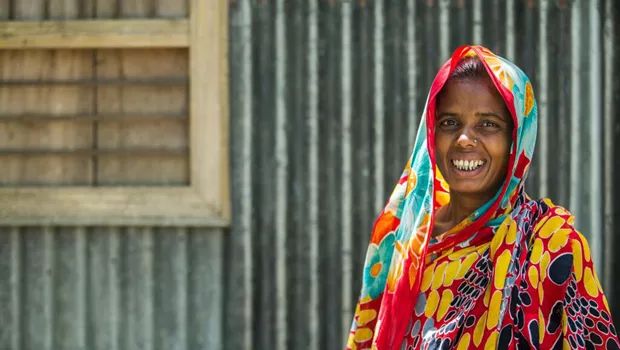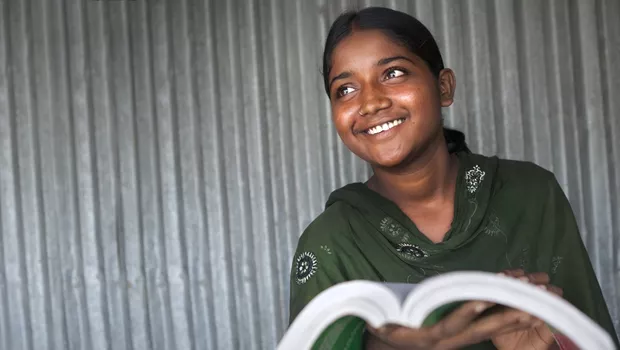“When we started the program we could not find one girl from the char islands who had passed the Secondary School Certificate [SSC] exam,” said Ruksana, referring to the critical test that allows a student to advance to the 11th grade. “Most parents assumed their daughters never would. We wanted to show them that with the proper guidance and support these girls can do it — they can go on to tertiary school. Our challenge was not to change the statistics but to change the mindset of this community.”
A perfect score
Although girls’ enrollment in secondary education has been increasing in Bangladesh, completion rate is still poor. Early marriage, poverty, child labor and parents’ lack of awareness of the importance of girls’ education are just some of the barriers girls’ face — which goes doubly so for girls from the chars.
Over the last five years Ruksana and her team of social mobilizers and program staff have been continually supporting and motivating the girls and their parents. For instance, the team organized special learning camps for weak performers, tracked each girl’s progress and provided extra support for the harder courses, such as math and science. They also motivated the parents to provide sufficient time and support for their daughters at home.
“In one community, our social mobilizers actually convinced parents to stop early marriages,” noted Ruksana, “and not only of their daughters. These parents ended up working with us to prevent early marriage in the entire community!”
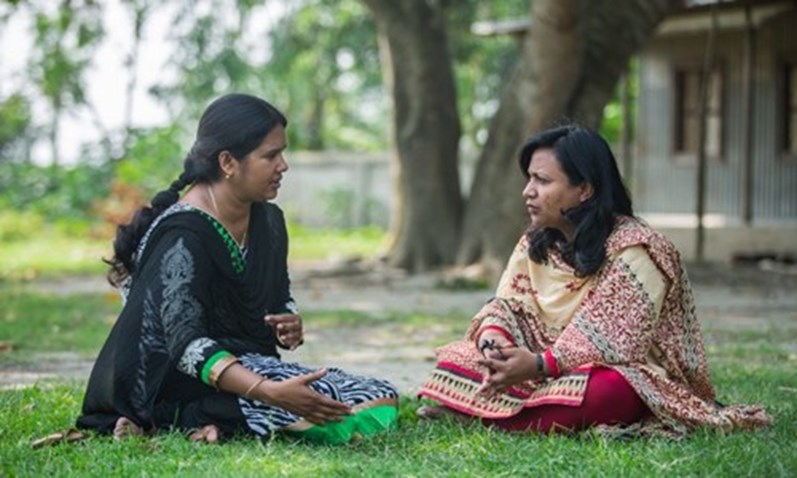
Ruksana listens to Room to Read Bangladesh’s Girls’ Education Program Associate Project Coordinator Hosne Ara
Ruksana believes this is why for the first time 96 percent of the girls from the chars passed the SSC exam. “This is higher than the countrywide pass rate of 91 percent! Five of our students received a perfect score. All of our girls have gone on to 11th grade,” she said with a broad grin. “It’s incredibly inspiring to work with these girls, to see how all the effort we put into the program has paid off and to watch each of them move forward in their lives. I am so proud of them.”
What’s more, over the past five years Ruksana’s team has prevented more than 130 early marriages on the chars in the Sirajganj region, thanks to their hard work — and especially that of the social mobilizers, or mentors to the girls, who are, as Ruksana put it, “working heart and soul” in these areas.
Never thought possible for a girl
If passing the SSC weren’t enough for the girls from the char islands, next year the Girl’s Education Program in Bangladesh will watch its first group of participants complete higher secondary school. Many represent firsts for their families and communities on the chars: the first to go on to tertiary school or to get a job — maybe as a teacher, a data entry person or with the military — jobs this community never thought possible for a girl.
“What makes all of this possible is our passionate, hard-working team, and the comprehensive support Room to Read provides girls to help them finish secondary education and prepare them for tertiary school or a fulfilling career,” said Ruksana. “By doing so we are improving the lives of these girls, the future of their communities and we are strengthening gender equality. Now parents are coming to us to enroll their girls in our Program!”
“Ruksana by my side”
Ismat Ara, the program’s Associate Project Coordinator, said part of their success comes from the way Ruksana motivates them to overcome challenges. “I remember in 2010 the monsoon season was longer than usual and the river had risen very high so it was impossible for the children to walk to school. Finding a boat was very difficult since they were in high demand. But with Ruskana guiding us we were able to secure a long boat to transport our students to school. We called it ‘Boat to Read,” said Ismat with a smile, adding,

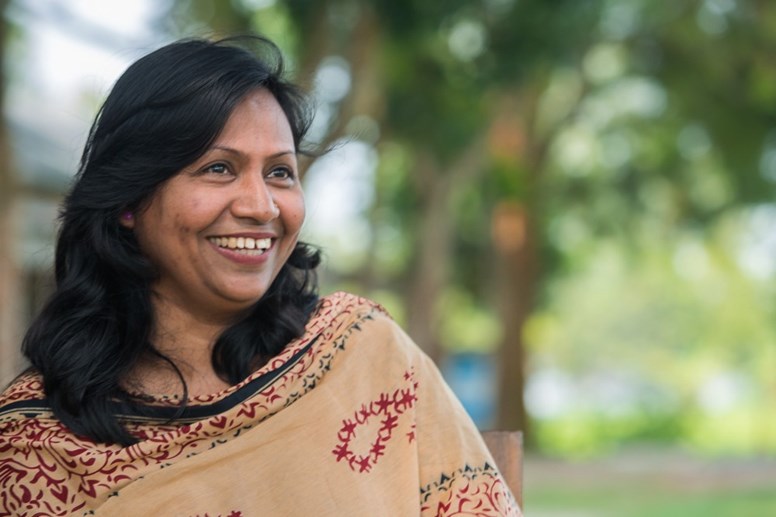 Ruksana Sultana, manager of Room to Read’s Girls’ Education Program in Bangladesh
Ruksana Sultana, manager of Room to Read’s Girls’ Education Program in Bangladesh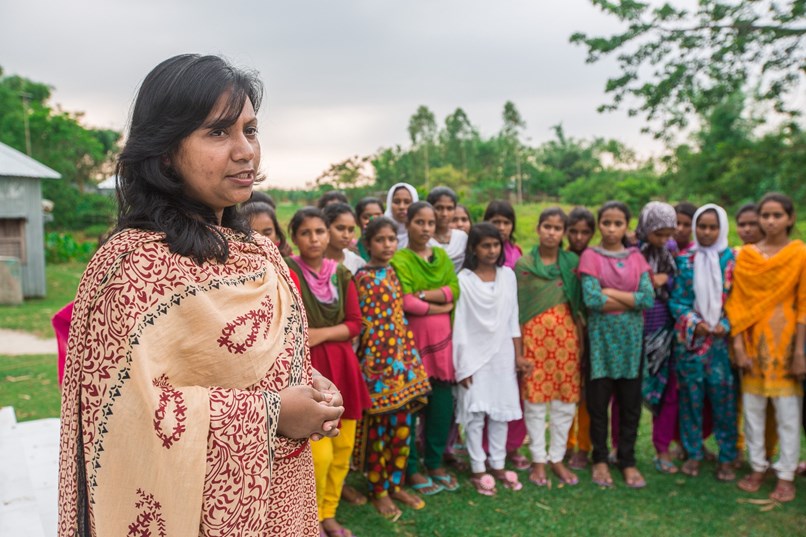

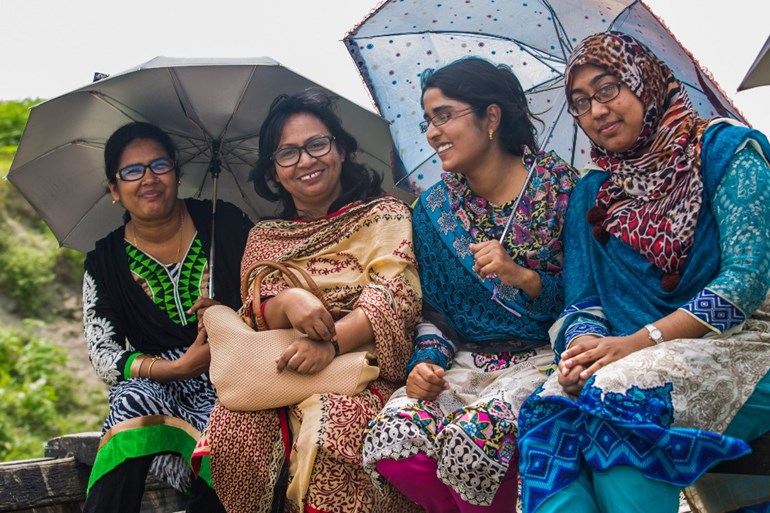 Ruksana shares a moment with the senior staff members at Bangladesh’s Girls’ Education Program
Ruksana shares a moment with the senior staff members at Bangladesh’s Girls’ Education Program